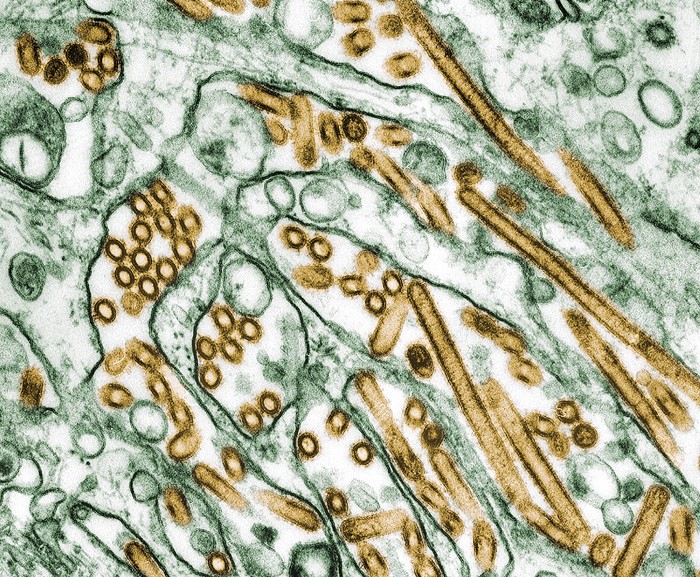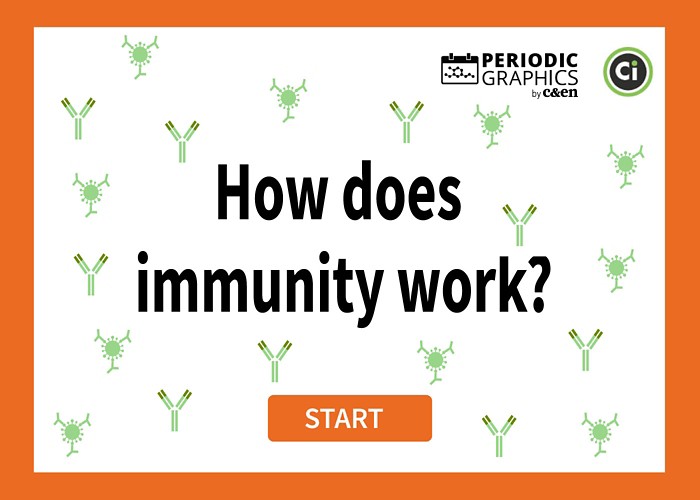Advertisement
Grab your lab coat. Let's get started
Welcome!
Welcome!
Create an account below to get 6 C&EN articles per month, receive newsletters and more - all free.
It seems this is your first time logging in online. Please enter the following information to continue.
As an ACS member you automatically get access to this site. All we need is few more details to create your reading experience.
Not you? Sign in with a different account.
Not you? Sign in with a different account.
ERROR 1
ERROR 1
ERROR 2
ERROR 2
ERROR 2
ERROR 2
ERROR 2
Password and Confirm password must match.
If you have an ACS member number, please enter it here so we can link this account to your membership. (optional)
ERROR 2
ACS values your privacy. By submitting your information, you are gaining access to C&EN and subscribing to our weekly newsletter. We use the information you provide to make your reading experience better, and we will never sell your data to third party members.
Infectious disease
The COVID-19 pandemic is likely to change the way science is done
by Bibiana Campos Seijo
April 10, 2020
| A version of this story appeared in
Volume 98, Issue 14
The COVID-19 pandemic continues to dominate the conversation, and rightly so. As of April 9, the number of cases worldwide has exceeded 1.4 million, and the death toll is over 87,000 and counting.
In my editorial last week, I discussed how Anthony Fauci’s newfound fame, thanks to his appearance in the White House’s televised briefings, has the potential to positively affect public perception of science. The New York Times published an article in a similar vein, in which the “rising heroes of the coronavirus era” extend beyond Fauci, who is the director of the US National Institute of Allergy and Infectious Diseases, to a group of prominent scientists around the world who are capturing the imagination and trust of the public: Massimo Galli in Italy, Fernando Simón in Spain, Christian Drosten in Germany, Sotirios Tsiodras in Greece, and others.
C&EN has made this story and all of its coverage of the coronavirus epidemic freely available during the outbreak to keep the public informed. To support our journalism, become a member of ACS or sign up for C&EN's weekly newsletter.
This week, I’d like to focus on how COVID-19 is changing not just how science is regarded but also how it is done. C&EN senior correspondent Lisa M. Jarvis asked a number of thought leaders in the life sciences to weigh in on how they think the scientific community is responding to the pandemic, what lessons have been learned, and whether any of the changes and approaches they’ve observed are here to stay. Read more at cenm.ag/covidimpact.
Greater collaboration, trust, and openness are themes that come through strongly. Charlotte Allerton, head of medicine design at Pfizer, celebrates the courage across the industry to create “a new sense of openness and trust to share early data and novel ideas.” And she thinks that there’s no going back: “We’ve opened doors for one another, and the way we now are working will carry forward into our future discovering medicines.”
Stanford University’s Carolyn Bertozzi points to greater unity within the community as one of the main positive outcomes. Scientists have joined the “unified race” against COVID-19, the “common enemy to unify and motivate people to bring their top game.”
These are difficult times, but it is often said that they bring out the best in people. We should celebrate the generosity of scientists around the globe. Who hasn’t heard of colleagues, collaborators, and friends who, while preparing for the temporary closure of their labs for an indefinite amount of time, decided to collect safety gloves and other protective gear as well as alcohol, disinfectants, and the like and donate them to local hospitals? David Liu, vice chair of the faculty at Broad Institute of MIT and Harvard, highlights this generosity of spirit from the scientific community, which is working to fight the pandemic “with little regard for cost or personal gain,” as a source of both pride and inspiration.
Many of the thought leaders Jarvis spoke with point out that new technologies are playing an important role during the pandemic. Kevan Shokat, chair of the Department of Cellular and Molecular Pharmacology at the University of California, San Francisco, mentions Slack and Zoom as crucial communication tools; Bertozzi highlights preprint servers and social media as important channels for sharing data and insights. They also praise the speed of innovation and, more generally, the rate at which resources were mobilized to accelerate discovery. Bruce Booth, a partner at Atlas Venture, is impressed by “how quickly innovation can move from bench to bedside when there’s an urgency to deliver.”
The pandemic may change the way we do science for good, emphasizing collaboration, transparency, speed, and public benefit. The sense of urgency to develop tests, treatments, and vaccines must remain, so that in the words of Michael Varney, executive vice president at Genentech Research and Early Development, we “maximize the likelihood that we’ll have an effective weapon against unknown diseases that might emerge in the future.” It’s clear that it’s not a matter of if; it’s a matter of when. It will certainly happen again.
Views expressed on this page are those of the author and not necessarily those of ACS.





Join the conversation
Contact the reporter
Submit a Letter to the Editor for publication
Engage with us on Twitter